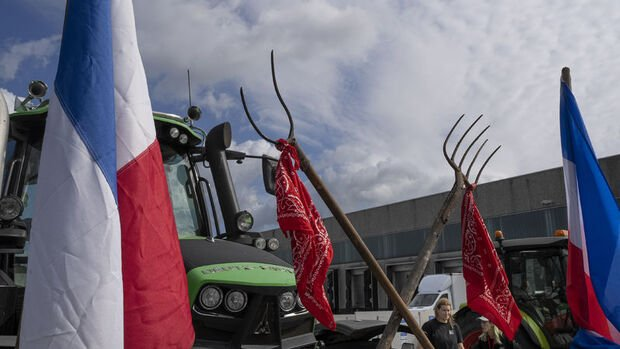The "Agricultural Agreement" crisis in the Netherlands
In the Netherlands, talks on an “Agricultural Agreement” between government officials and farmer representatives ended without an agreement after the country’s largest farmers’ union, LTO, left the table. Talks on an “Agricultural Agreement” between government officials and farmer representatives in the Netherlands ended without an agreement because the country’s largest farmers’ union, LTO, left the table. In a letter sent by Minister of Agriculture, Nature and Food Quality Piet Adema to the lower house of the Dutch Parliament, it was stated that the talks with farmer representatives on the “Agricultural Agreement” regarding the future of farming in the country ended without an agreement. Adema’s letter noted that the country’s largest farmers’ union, LTO, left the table at the meeting on June 14 due to its reservations about the draft agreement. It was reported in the letter that after LTO left the table, government officials continued to meet with other smaller groups, and that LTO informed government officials on June 20, and the other parties at the table today, that they would not continue the talks. Following the LTO’s decision not to participate in the talks, it was reported that other farmer groups at the table, bankers, food wholesalers and representatives from environmental institutions also wanted the process to be terminated on the grounds that “the talks will not be successful.” The letter emphasized that the agreement, which envisages the government imposing a series of restrictions within the framework of climate policies, contains uncertainty for the future of many farmers and that the changes in question are a radical process. The letter evaluated the termination of the talks without reaching an agreement as a “missed opportunity,” and stated that the government will decide how the agreement in question will proceed from now on. What is the “Agricultural Agreement”? In the Netherlands, the government envisions imposing a series of restrictions in the agricultural and farming sectors as part of the targets of reducing nitrogen emissions by 50 percent by 2030. The main restrictions the government wants to impose include reducing the number of cows that farmers can keep for each hectare of land they operate and regulations regarding irrigation methods and pesticides used in agriculture. Farmers, on the other hand, oppose the agreement on the grounds that the payments the state will give to farmers will not be sufficient despite the increasing costs and that domestic products will not be able to compete on price with imported products that do not face these restrictions, and claim that the restrictions mean that farmers' activities in the country will end. According to data based on the Dutch Ministry of Finance, 11,200 farms are expected to close in the country due to targets to reduce nitrogen emissions by 2030, while 17,600 farms are expected to reduce their current animal numbers by more than a third.


